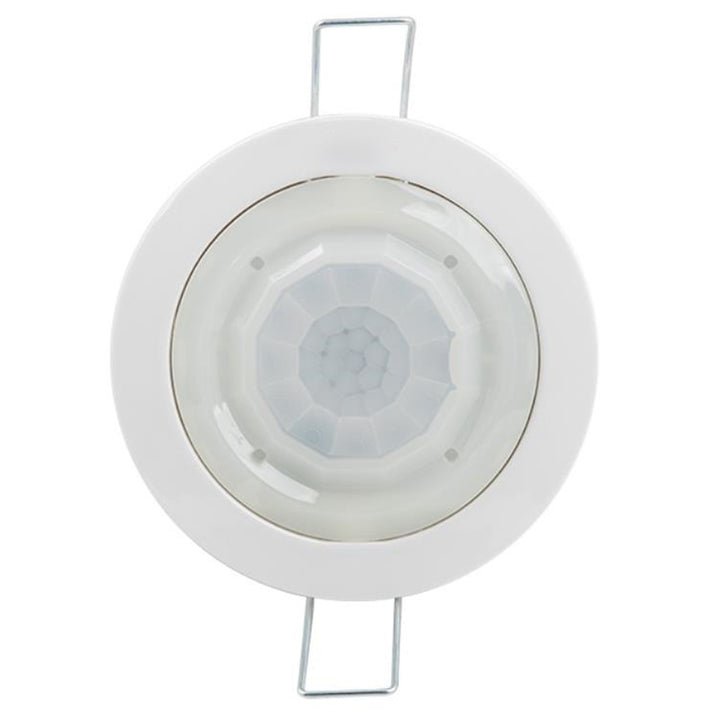
Sensors
Sensors: Why you need them
At TNG Electrical, we love anything that can simplify life and simplify daily tasks.
While the concept of having electrical sensors scattered around your home may sound futuristic or overwhelming, you might be surprised to know they’re already at work in places you wouldn’t even imagine. In fact, you might already be using them without realizing it. The best part? These smart devices can streamline your daily activities, making your home smarter, safer, and more energy-efficient.
In the age of the "smart home," technology is revolutionising our lives by making everyday tasks more convenient — and electrical sensors are leading the charge. Sensors are quickly becoming an essential part of home automation, and with rapid advancements in sensor technologies, the possibilities are endless.
It's easy to overlook, but sensors are already deeply embedded in the devices we interact with daily. From the gadgets in our homes to the cars we drive, these technologies are seamlessly integrated into our lives, often without us even realizing it.
We use feature built-in sensors for many everyday items, and this is just the beginning. The potential for sensor technology to revolutionize our lives is vast, and we're only scratching the surface of what's possible.
We'll explore why incorporating sensors into your home or business could be a game-changer. But first...
What Are Sensors?
Sensors detect changes in physical variables — such as pressure, temperature, infrared light, or wind speed — and relay this information to the user or another electrical device. In simple terms, they help control or monitor different conditions in an environment.
These sensors come in various forms and use different methods to detect and convert signals into usable data. For instance, motion sensors that detect a person’s presence in a room often use infrared technology to measure temperature and movement. When a person enters the room, the sensor detects the change in temperature or movement, triggering a response, like turning on the lights or adjusting the thermostat.
Sensors operate by emitting waves (like infrared or ultrasonic), which bounce off objects and cause changes in the sensor's output, allowing it to detect the presence or absence of something. This ability to capture and process data makes sensors incredibly valuable in home automation systems.
5 Benefits of Sensors
There are numerous advantages to installing electronic sensors in your home or business, including:
Saving Time
Sensors can automate everyday tasks, freeing up your time. For instance, a light sensor can automatically turn on outdoor lights at dusk, or a temperature sensor can adjust your heating or cooling system when the temperature goes above or below your desired range. With sensors in place, you won’t need to turn devices on or off manually.
Reducing Energy Expenses
By using motion sensors and light sensors, you can cut down on your energy consumption. These sensors ensure that electricity is only used when necessary. For example, motion sensors can turn on lights when someone enters a room, and lights will automatically turn off when the room is empty. This level of automation helps lower your electricity bill by ensuring energy isn’t wasted.
Reducing Your Carbon Footprint
Sensor technology helps lower one's carbon footprint by reducing energy consumption. By minimising unnecessary power usage, sensors contribute to reducing the waste and pollution generated by electricity production. This, in turn, helps protect the environment by using less energy and reducing emissions.
Improving Security
Sensors can significantly enhance the security of your property. Motion sensor lights automatically illuminate areas when there is movement, which can deter burglars and intruders. In addition, these sensors are increasingly being integrated into security camera systems, providing real-time monitoring and alerts to keep your home or business safe.
By incorporating sensors into your daily life, you're not just automating tasks, you're contributing to a more sustainable, secure, and energy-efficient environment. The benefits are clear, and the future is bright with sensor technology.
Sensors play a crucial role in modern security systems by offering enhanced protection for your home or business. Here's how they work:
Immediate Break-In Detection: Sensors installed on doors and windows provide instant security. They detect any movement or unauthorised opening, triggering immediate alerts or alarms. This real-time notification system enhances your security, giving you peace of mind that your property is protected.
Versatile Smart Integration: These sensors are not just for security. They can be seamlessly integrated with smart home systems, enabling a range of automated actions. For instance, they can turn on lights when detecting motion, enhancing security and adding convenience. Lights can automatically activate when someone enters the room or approaches your property, making your daily routines more efficient.
By incorporating sensors into your security setup, you're not just adding a layer of protection. You're significantly enhancing your property’s safety and peace of mind. You'll have the assurance that your property is protected, and your daily routines will become more efficient.
Maximise Convenience with Sensors
There are days when even the simplest tasks can feel like a burden. Getting up to turn off the lights before bed can seem like a chore. But with sensors, you can bid this problem goodbye and make your daily routines more efficient, allowing you to be more productive and organized.
For example, sound sensors in your lighting setup could allow you to turn off the lights with just a simple clap of your hands! This level of convenience makes your home or business more automated and efficient, providing you with a comfortable and convenient living or working environment.
Types of Sensors
Sensors are incredibly versatile and are used in many aspects of daily life. They can measure pressure, distance, light, sound, and more and are designed to trigger specific actions based on their detection. Here are some of the most common types of sensors:
Motion Sensors
Motion sensors are one of the most widely used types of sensors today. These sensors detect movement, such as when someone enters a room or walks past a sensor. Motion sensors are most commonly used for:
Lighting: Automatically turning on lights when motion is detected, whether for indoor or outdoor use.
Sanitizing: Used in public restrooms to turn on faucets or hand dryers, promoting hygiene by reducing the need to touch surfaces.
These sensors can often be adjusted for sensitivity, ensuring they don’t react to small, unintended movements, such as a bird passing by.
Light Sensors
Light sensors detect the presence and intensity of light in their environment. They can be set to:
Automate Lighting: Turn lights on or off automatically when it gets dark outside.
Business Uses: Improve security by ensuring your business is visible at night without manually adjusting lighting times, especially with fluctuating sunrise and sunset times throughout the year.
This saves time and ensures the lighting is always appropriate, reducing the risk of break-ins while keeping your premises illuminated.
Temperature Sensors
Temperature sensors are already embedded in many heating and cooling systems. They help regulate indoor climates by:
Heating and Cooling Systems: The HVAC system is turned on when temperatures rise or fall beyond a preset range to maintain comfort in the home or office.
Energy Efficiency: Reducing energy consumption by ensuring systems only run when needed, like turning off the system when the room is already at a comfortable temperature.
These sensors enhance comfort while reducing energy waste, leading to cost savings.
Pressure Sensors
Pressure sensors detect changes in pressure, such as when doors or windows are open. They are used for:
Security: Ensuring windows or doors are properly closed for home and business security.
Warnings: Notifying you when items like refrigerators or freezers are not properly sealed, potentially saving food from spoilage.
These sensors help to maintain security and ensure household appliances work efficiently.
Audio Sensors
Audio sensors detect sound and can be programmed to trigger noise-based actions. For example:
Smart Home Automation: Turning off lights or devices when no sound is detected in a room, such as when everyone leaves.
Gesture Control: Activating devices with simple sounds, like clapping to turn on lights.
Audio sensors can make automation even more convenient by responding to sounds like claps or silence.
Sensors Are Everywhere
It’s not just your home or business that benefits from sensors. They’re integrated into many systems around us:
Traffic Lights: Traffic sensors adjust signal timing based on traffic flow, ensuring smoother commutes and reducing wait times at intersections.
Automated Systems: Sensors are essential in various public and private systems, helping to streamline daily activities and improve safety.
Incorporating sensors into your home or business can greatly enhance convenience, security, energy efficiency, and overall quality of life. Whether through automation, security, or energy savings, sensors are an indispensable part of modern life.
Indeed, sensors are becoming an integral part of the modern world, enhancing both safety and convenience across many areas. In public spaces, light sensors are used in street lighting to automatically turn on the lights when darkness falls, improving safety for pedestrians and drivers without manual intervention. These sensors help ensure that public spaces are well-lit when needed while saving energy by turning off lights when they’re not necessary.
The use of sensors is expanding rapidly in all aspects of life—from smart homes to public infrastructure, providing benefits like improved energy efficiency, reduced maintenance costs, and enhanced security. Whether you’re looking to make your home more energy-efficient, your business more secure, or your community spaces more functional, sensors are a smart and sustainable choice.
As we continue to embrace this technology, it’s a great idea to start integrating sensors into your own home or workplace. From motion detectors and temperature sensors to security monitoring, there are endless possibilities to enhance your environment. With the growing reliance on smart technology, sensors are essential in making our lives more convenient, safe, and efficient.
Ready to step into the future? Begin exploring sensor technologies today to see how they can transform your space!
Ready To Take The Plunge?
Ready to upgrade your property with sensors? Whether you’re looking to enhance security, improve energy efficiency, or simply make daily tasks easier, sensors are the perfect solution.
At TNG Electrical, we make it easy to install sensor technologies that fit your needs. From motion detectors and light sensors to smart home systems, we can help you integrate these innovations into your home or business seamlessly. And since sensors require minimal maintenance and last a long time, it’s a great investment for the future.
If you’re ready to take the plunge and enjoy the convenience and security sensors provide, contact us today! We’re here to answer all your questions and ensure a smooth installation process.
Give us a call at 0405 524 788 or click the button below to schedule an appointment now!
Here to help you
Our team is ready to help you. Get a quote for your electrical installation needs today!









